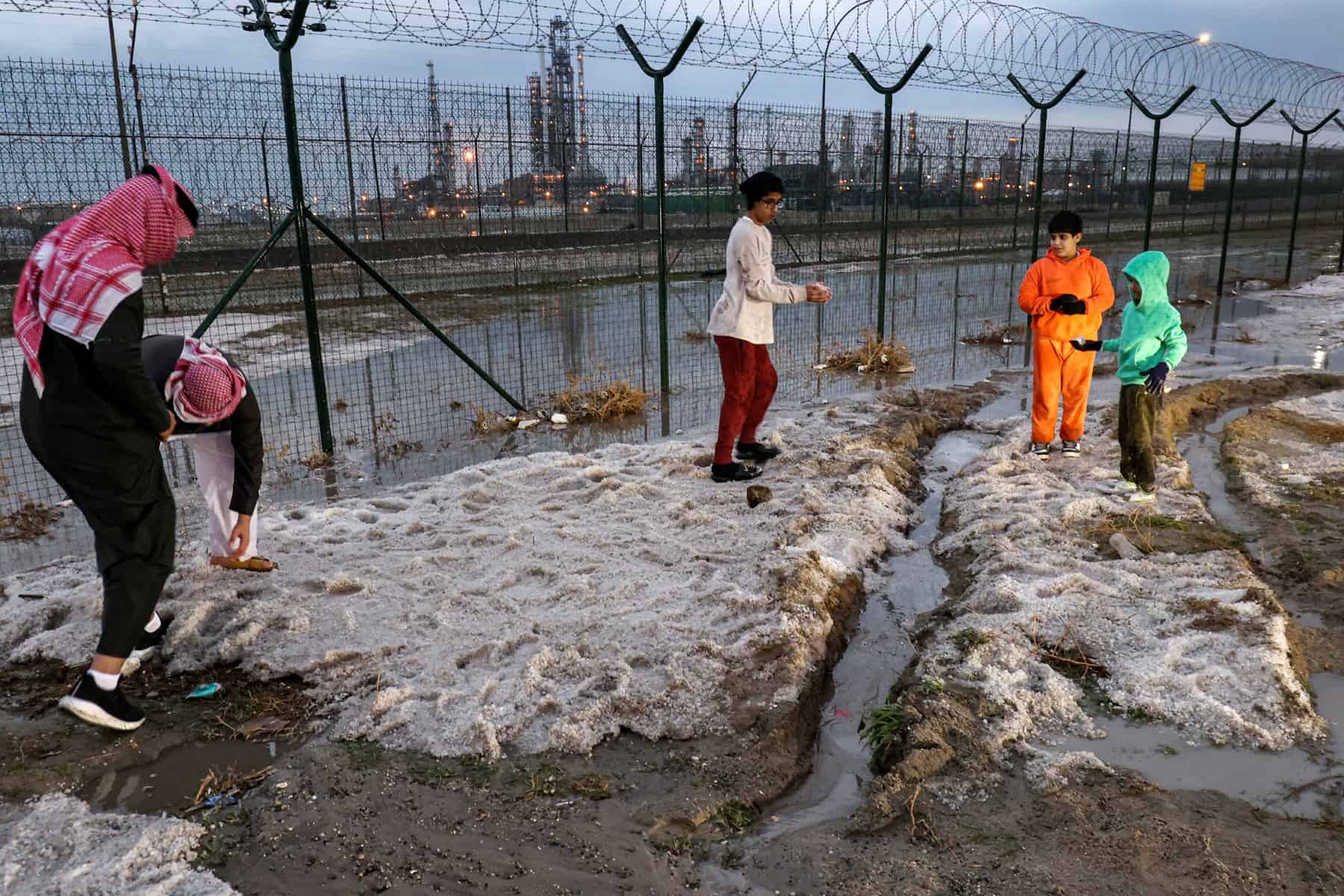Kuwait City, Kuwait–Kuwait, one of the hottest countries on Earth, has been hit by a rare hail storm that delighted children and their parents, with images of the winter white shared widely on social media Wednesday.
“We have not seen so much hail during the winter season in 15 years,” Muhammad Karam, a former director of Kuwait’s meteorological department, told AFP.
Pictures and videos of southern roads partially blanketed in hail and ice spread online to celebrate the rare weather event.
Children donned scarves and raincoats as they scooped up hail in the Umm al-Haiman district, about 50 kilometres (30 miles) south of Kuwait City.
Kuwait’s meteorological department said precipitation since Tuesday had reached up to 63 millimetres but that the weather was clearing up.
Karam said he expects the phenomenon to reoccur as climate change disrupts weather patterns.
The oil-rich Gulf nation endures blistering summer heat, and scientists predict it could become unlivable in future because of climate change.
In 2016, summer temperatures peaked at 54 degrees Celsius (129 degrees Fahrenheit).
Parts of Kuwait could get 4.5 degrees Celsius hotter from 2071 to 2100 compared with the historical average, the Environment Public Authority has warned.








